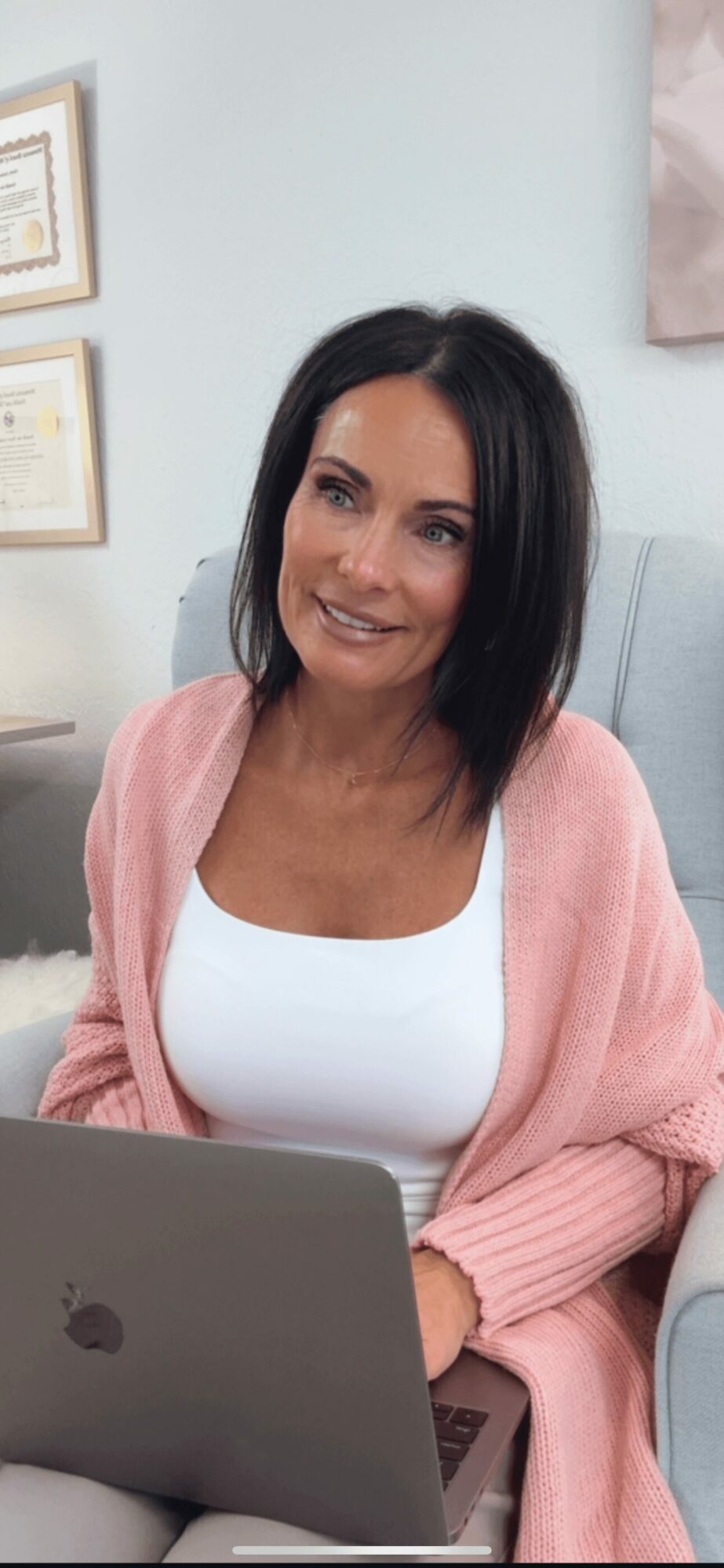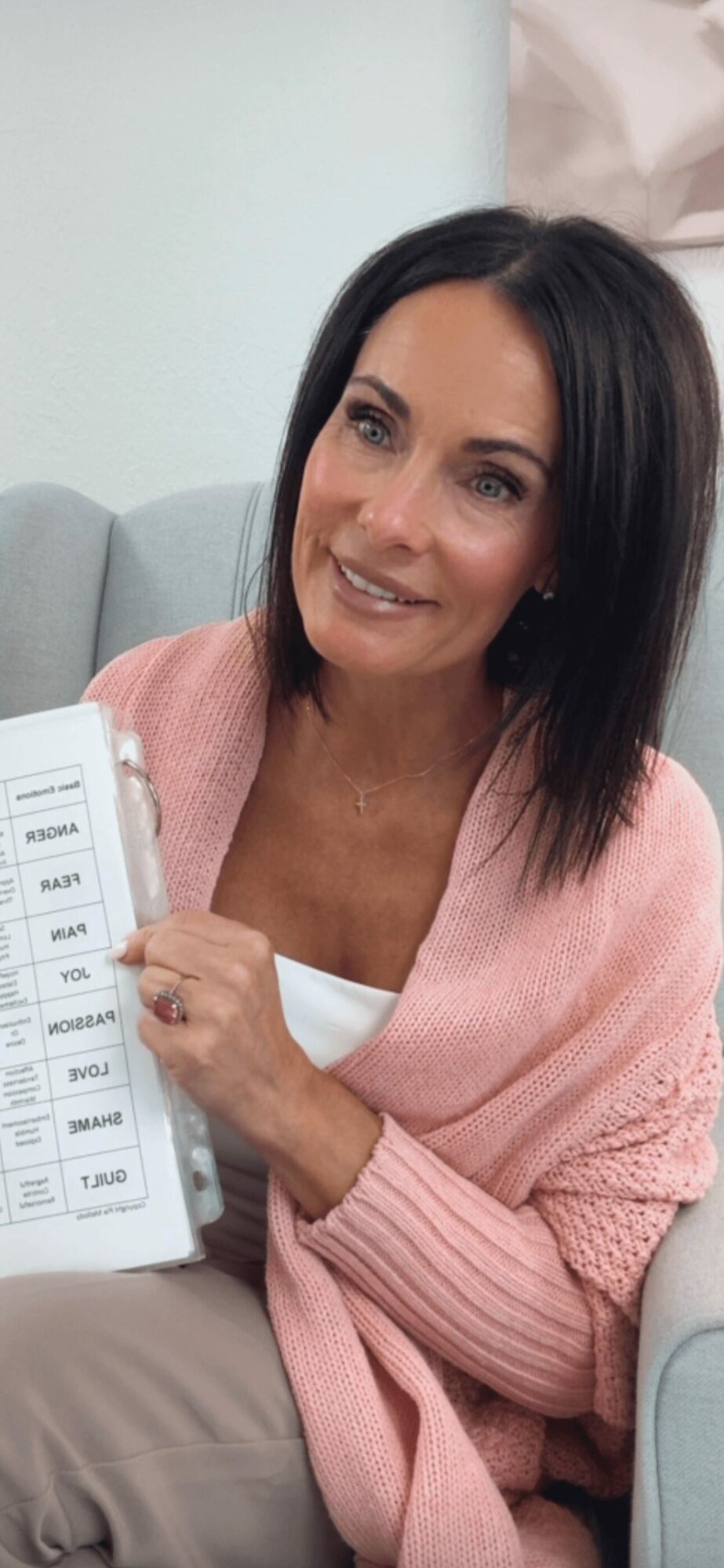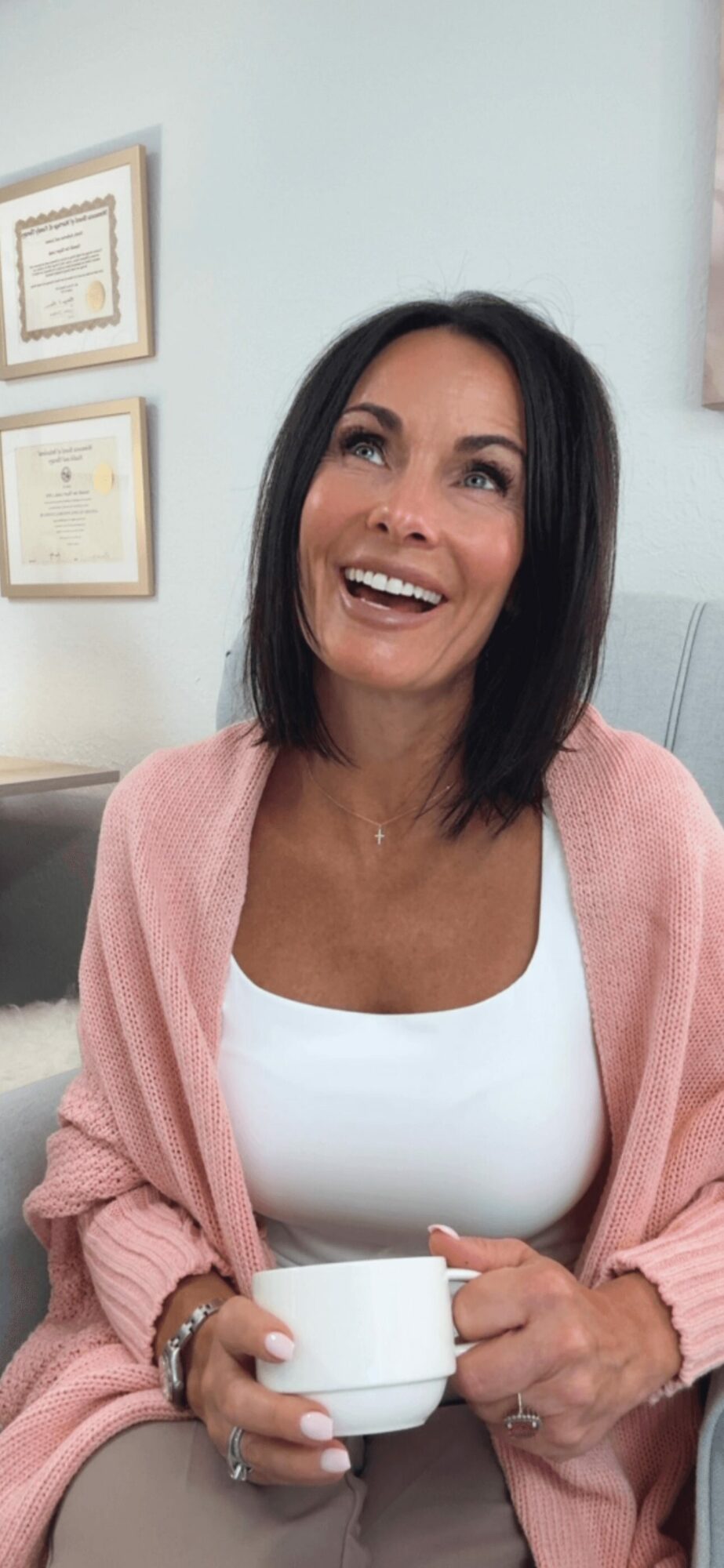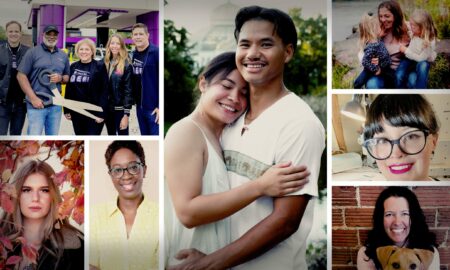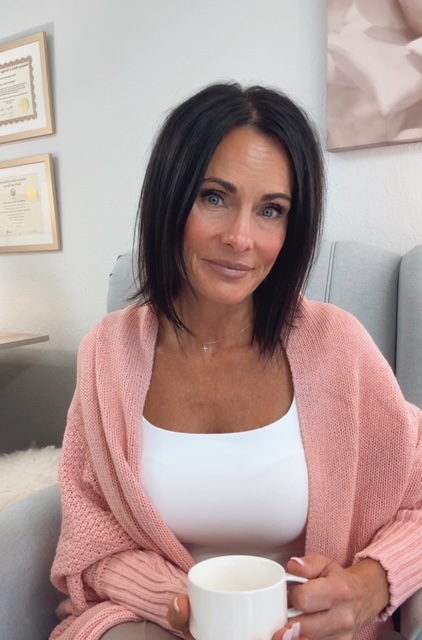

Today we’d like to introduce you to Danielle Landa.
Hi Danielle, we’d love for you to start by introducing yourself.
As an only child, I spent a lot of time in my own head—deeply reflective, wildly imaginative, and highly observant. I was always trying to make sense of the world around me, especially emotions and relationship dynamics, long before I had the language to name them. What began as an effort to understand my own experience eventually became the foundation for my life’s work as a therapist.
In college, I was a starry-eyed student with big hopes of “making a difference.” I earned a degree in elementary education and worked in early childhood for several years. Becoming a mom in my twenties shifted my priorities, and for a season, I devoted myself to raising my four children. Once my youngest started school, I felt called to step into a new level of impact.
I chose the field of mental health because of my deep curiosity about the human condition and my intuitive ability to see patterns and connections. My own therapy experiences were helpful, but I wanted more than problem-solving. I wanted to understand the interaction patterns that emerge under stress and learn the skills to move through challenges with maturity. That same desire to go deeper soon became the compass for my work with clients.
When I entered the field, I took what I like to call the “fire hose” approach to learning. I immersed myself in everything I could find on development, attachment, trauma, neuroscience, and relationships (and I still do). Eventually, I discovered the Healing Our Core Issues Model (HOCI), which focuses on developmental and relational trauma. In my view, this model is essential to understanding how early adaptations designed for survival often work against us as adults. I also trained in the developmental model of the Couples Institute, which shifted my lens from pathology to growth. This approach helps me identify exactly where people get stuck and gives me a clear roadmap for fostering lasting change.
When it came time to name my practice, I chose Mollitiam, the Latin word for resilience. I believe deeply in the innate resilience of humans; the ability to heal, adapt, and grow at any stage of life. Thanks to neuroplasticity, we are not bound by our past or our patterns. We can rewire old ways of relating, build healthier connections, and create new possibilities for our future. That truth inspires every part of my work.
Through this journey, I’ve come to realize that real change happens one person at a time, one couple at a time, one family at a time. And that is exactly the work I’m honored to do every day.
Can you talk to us a bit about the challenges and lessons you’ve learned along the way. Looking back would you say it’s been easy or smooth in retrospect?
I began my career in a group practice, where I worked for about eight years. Those years gave me a solid foundation, but a couple of years ago, I felt the pull to venture into private practice. I’ll be honest, it was terrifying. I remember staring at my calendar, wondering if the phone would ring, worrying that I might never fill my caseload. Additionally, private practice can sometimes feel isolating. Without the built-in support of a team, it’s easy to feel like you’re navigating this work on your own. There were moments I questioned whether I had made the right decision. But even in the fear and loneliness, I felt determined to keep moving forward.
In my clinical work, one thing became clear very quickly: research consistently shows that the quality of the therapeutic relationship is the single most important factor in whether someone heals in therapy. In other words, how your client feels when they are with you matters most. But I also noticed that many people were hungry for more than a nurturing presence. They wanted to grow emotionally, look at themselves more honestly, and become authentic and accountable in their relationships. To support this kind of deep change, I had to go beyond surface-level skills and really understand how negative interaction patterns develop and why they hold so much power in adult relationships.
That required me to do my own work. And that was humbling. Confronting my own emotional immaturity (especially in my marriage) was one of the hardest but most necessary parts of my journey. I had to face the reality that my reactions weren’t just about what was happening in the present; they were echoes of old wounds. I saw how quickly my core wounds could drive me into automatic reaction patterns, which then triggered my partner’s nervous system, pulling him into his own reactions. And just like that, the cycle took over.
That realization changed everything for me as a therapist. I began to see that what defines a couple’s “fight” isn’t the topic; it’s the cycle of reactivity that gets activated whenever differences surface. And until couples learn to recognize their triggers, self-soothe, express desires in a relational way, and listen without trying to change each other’s reality, they stay stuck in that loop.
It took years of research and practice, along with a lot of trial and error in my own life, to develop a structured program that guides couples out of that loop. The program helps couples build self-awareness, recognize how childhood wounds resurface under stress, and learn the skills to regulate their nervous systems, allowing them to show up as functional adults rather than their wounded selves. We focus on moving beyond their defenses, and into communicating in ways that build connection, trust and teamwork.
My work now is about more than helping couples stop fighting — it’s about helping them rediscover each other, repair old injuries, and build the kind of connection that feels strong, safe, and lasting.
Alright, so let’s switch gears a bit and talk business. What should we know?
I specialize in helping couples identify their fighting patterns and build the internal skills to manage reactivity so they can show up as the kind of partner they want to be. Much of this work involves healing the wounded parts of oneself that keep resurfacing in relationships, so couples can feel confident, live with integrity, and be more fully present in their lives.
In addition to individual and couples therapy, I offer therapy intensives for couples who want the equivalent of 6–12 months of progress in just two days. Research shows that intensives are highly effective because they align with the brain’s natural learning and change processes. With longer sessions, couples can move past defenses and stay in the “golden window” long enough to rewire old patterns, integrate new experiences, and create lasting changes in their relationship. Instead of leaving the hard work unfinished at the end of a weekly session, couples immerse themselves in a process that allows them to resolve old pain, experience each other differently, and reset the trajectory of their relationship.
For couples who prefer to work asynchronously, I am developing a signature program that guides them step by step in identifying their negative fighting patterns, uncovering the childhood wounds that fuel their reactivity, learning to self-soothe, and respond to their partner in more relational ways. The program also provides a roadmap for becoming the partner they aspire to be, with clear practices for accountability and emotional maturity. This program is scheduled to launch in November-stay tuned!
Is there a quality that you most attribute to your success?
I would say the most essential quality behind my success is curiosity. Curiosity allows me to slow down, notice without judgment, and meet my clients where they are. When I stay curious, I affirm that their internal world is unique, valid, and worth exploring. This not only helps clients feel seen and understood. It also fosters the safety that leads to a soothing, trusting, and secure connection.
Curiosity also fuels my growth mindset. It keeps me open to new perspectives, a deeper understanding, and continuous learning about the human condition. It’s what drives me to keep asking questions, to keep learning, and to continually expand my capacity to help clients transform their relationships and lives.
Contact Info:
- Website: https://www.mollitiambehavioralhealth.com/
- Instagram: @resilientcouples
